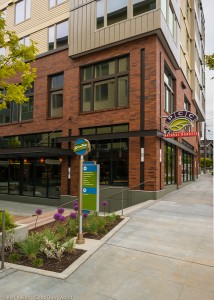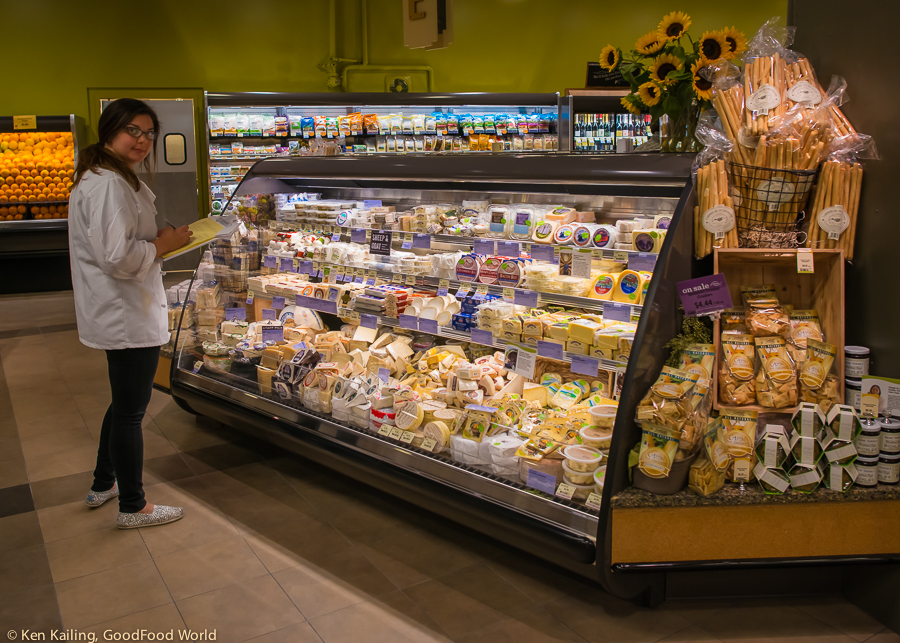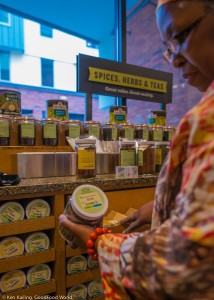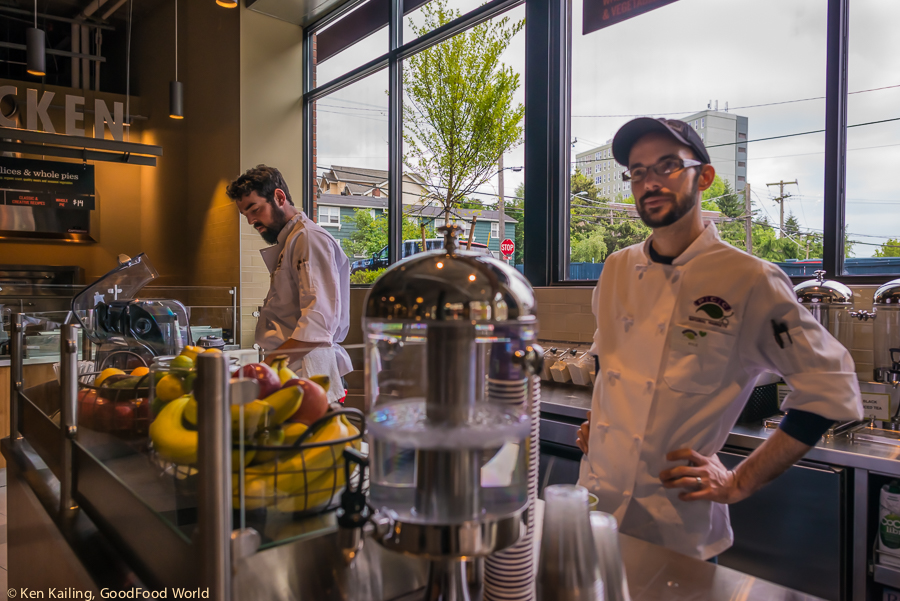(Take a tour of the new PCC Green Lake Village here.)

Seattle’s Green Lake neighborhood, wrapped around Green Lake Park, is one of the city’s most popular. Densely populated, the neighborhood is made up of small high-income urban households, living primarily in rental units. Almost all of the neighborhood’s married-family households have both partners working, generally in management or professional occupations. Those workers generate a median household income of $60,000 to $80,000 by commuting about a half an hour each way—on a good day. Bad traffic can force that up to more than an hour.
Green Lake Park, designed by the famous Olmsted Brothers in 1903-1905, is crowned by a jewel of a lake (258-acres), which draws masses of visitors every day: hundreds of joggers, walkers, and skaters every morning—rain or shine—on the paved 2.8-mile lake shore path and thousands enjoying the park on a hot summer day.
What better place to put a new PCC Natural Market?
PCC Natural Markets is one of the largest and oldest natural food co-operatives in the country: founded in 1953 as a 15-family buying club. A membership-owned co-op of more than 52,000 members, the PCC has continually evolved to reflect changing neighborhoods, new consumer demands, and rapidly evolving industry trends.
Depending on your age, you might envision a co-op as a cozy, slightly run-down food market with barrels of flour and bags of rice on the floor, around which barefoot children run while their parents debate politics and plan social actions against “the establishment.” Or, if you’re a generation or two younger, you might imagine a “mini-Whole Foods Market” offering perfect produce, a wide range of canned, frozen, and prepackaged organic food, and Fair Trade coffee at an espresso bar.

Not your parents’ food coop

Food co-ops have always reflected contemporary culture and have changed as society has changed and, let me tell you, the Green Lake Village PCC is clearly NOT your parents’—or grandparents’, if you’re young enough—food co-op!
The new Green Lake Village PCC, anchored in a just-completed urban development comprising 300 apartments, clearly reflects its location. Large (27,000 square feet) and well-staffed (130 employees), the new PCC works hard to balance its focus and attention between weekly family shopping trips and the convenience of carryout prepared food.
The view from the entrance, through a large and well-appointed bulk section, draws shoppers into the store. Shelves of bulk herbs and spices; rows and rows of bins delivering grain, flour, dried fruit, candy, and more; and an island of custom-fitted stainless steel “fustis” offering oils, syrups, and sauces, make “buying bulk” a very attractive shopping option!
Through the bulk section into the produce section, traditional coolers and bins of bulk fruits and vegetables are on display, however there are more bagged and boxed fresh and “value-added” produce items on offer than ever before. From clear plastic clamshells of berries and cherry tomatoes to cut fruit and vegetables, salad kits, and bagged lettuce and greens, “fresh” produce has taken on a new meaning.
Food on the go
While your first impression of the store may be of abundance and freshness, it soon becomes clear that the Green Lake Village PCC’s target shopper is not leisurely pushing an overflowing cart down the aisles but one looking for something quick, delicious, and healthy to take out.
Because the store will serve working residents, visitors to Green Lake Park—especially early morning walkers and runners—and workers from surrounding offices, a large amount of floor space is devoted to takeout options. In fact, it feels like more than half the store is made up of a deli, a grab n’ go section, a cold bar with salads, a hot bar with soups and entrees, a pizza counter, a smoothie and espresso area, a wine and beer department, and a cheese counter.

Dealing with food and packaging waste
The trend to more plastic packaging, like clear clamshells or single-serving containers, is being driven from both the produce packaging industry and from consumers. For the industry, plastic containers in the form of bags, boxes, and pouches offer ease of shipment, protection from damage, food safety, and space to apply information and advertising.
Consumers prefer plastic containers, especially clear or transparent ones, because the contents are visible; the packaging is convenient, portable, and often provides portion control; and the food is protected both from indiscriminate handling, damage, and the introduction of pathogens.
PCC Natural Markets, having come from a tradition of social consciousness and built on what is today called, “The Triple Bottom Line,” has initiatives—and goals—in place to “operate as sustainably as possible.” Recognized “Best Workplace for Recycling” by King County, PCC’s focus on waste management doesn’t stop with the stores. PCC has put in place, “Practices that reduce the amount of waste—on and off our premises—that is generated from packaging, food spoilage, and supplies, and increase the opportunity for reusing or recycling materials, have been in place at PCC for many years.”
Listen to Diana Chapman, Director of Sustainability, PCC Natural Markets, as she discusses the ways that PCC is working to manage waste in house and in the community.
